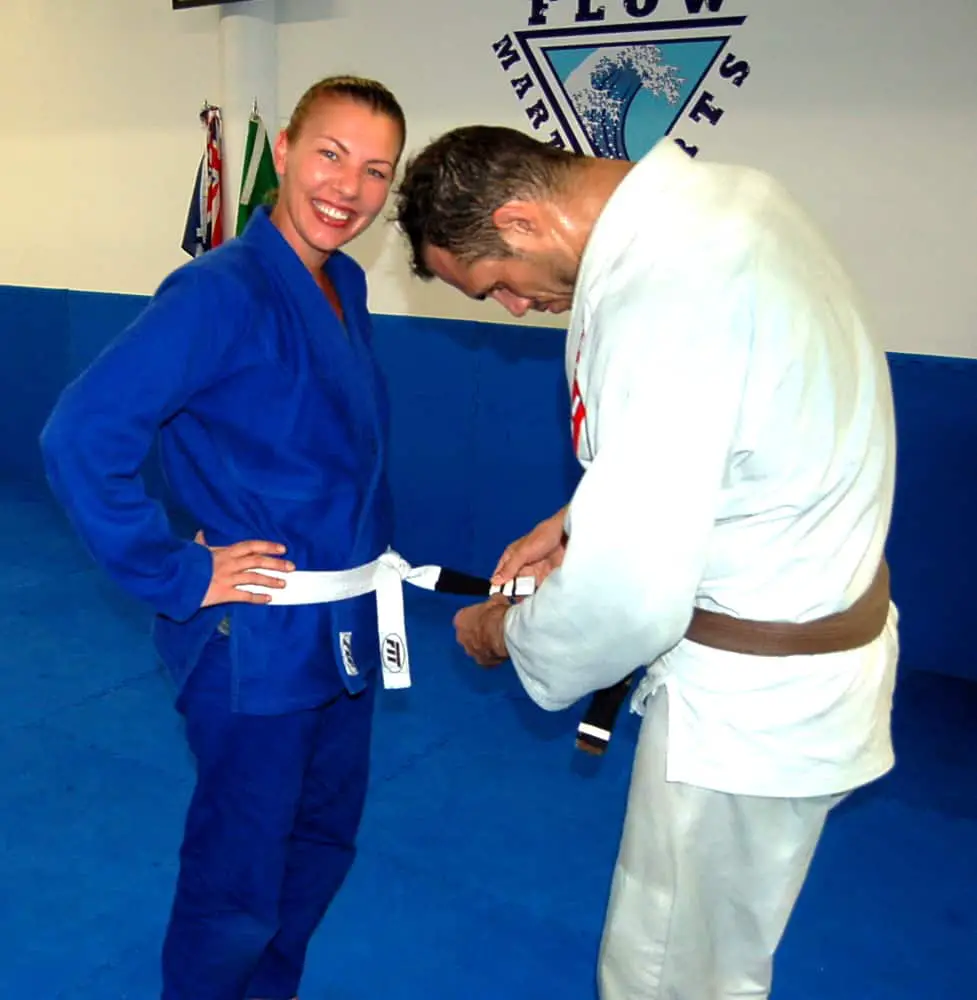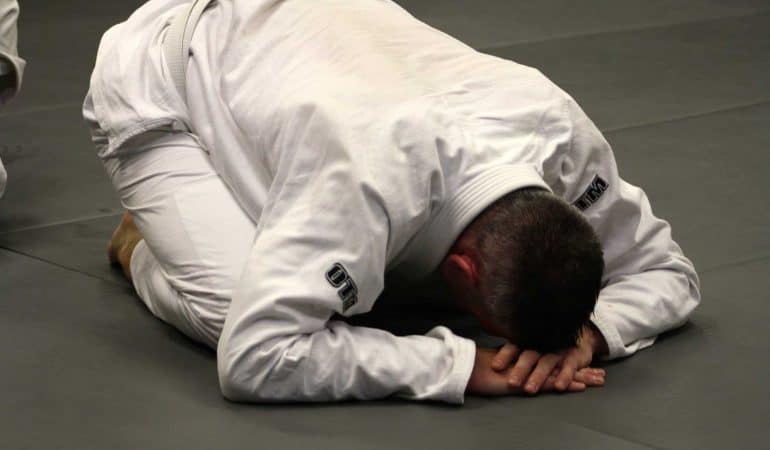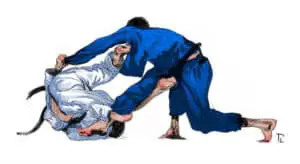
BJJ is a tough sport. It is made even tougher by beginners and white belts falling into easily avoided pitfalls. If you can stay consistent with your training and look at the big picture you will make significant progress and there is no reason you can’t achieve all of your BJJ goals.
To make your Jiu Jitsu journey a little bit easier we will help you identify some of the common mistakes white belts find themselves in.
What Are The Most Common BJJ White Belt Errors?
BJJ white belts make a lot of mistakes. They will often burn out from overtraining or not taking time off to rehab injuries. White belts will have too high expectations and expect to be experts in a few months. They will ignore technical instruction and focus on sparring too hard.
White Belts Expecting To Be Black Belts Within Months

BJJ is a complex sport. There are literally thousands and thousands of techniques. To just wrap your head around the sport and develop solid fundamentals takes years.
You can forget becoming an expert until you have trained for at least 5 years. If you are only training 2 to 3 times a week you can double to that 10 years or more.
Too many white belts think they can turn up to a BJJ gym and learn how to do an arm bar and a rear naked choke and that makes them a skilled BJJ practitioner. This notion is quickly crushed when they spar against experienced practitioners who easily destroy them and tap at will without breaking a sweat.
When this happens many white belts become frustrated and quit the sport. They let their egos get the best of them. Instead of accepting the situation they decide to blame the sport and move onto another hobby pursuit.
It doesn’t matter how athletic you are or how good you were at football or basketball, BJJ is a completely different sport. If you want to become an expert in BJJ you have to become a student of the martial art, pay your dues and spend thousands of hours perfecting your technique. Only then will you become truly great at Jiu Jitsu.
Being a great athlete helps you fast track your progress but only if you are willing to open your mind and have a beginner’s mindset. You must be willing to work on your weaknesses and learn the positions and movements.
You often find that with good wrestlers who come into BJJ, many are already great grapplers but they are unable to become great at BJJ because they don’t want to learn a new sport.
They just want to wrestle and maybe try out a few submissions. Without taking the time to learn guard and the different transitions and tactics in the sport their Jiu Jitsu development will be severely stunted.
To avoid this effect you need to be realistic with your progress. If you train 5 to 6 times a week after a year of consistent work you can expect to have solid fundamentals and be an advanced beginner or lower intermediate.
If you maintain this training volume for another 2 years you will be an upper intermediate BJJ athlete. After another 2 years of training you will start becoming an advanced or expert athlete.
You need to always maintain a beginner’s mindset. You must always be open to criticism and learning new techniques. You must not shy away from working on your weaknesses. Most importantly just enjoy the process and the journey.
White Belts Quitting BJJ Due To Overtraining

You see it all the time at BJJ academies, a new enthusiastic white belt shows up and proclaims how BJJ is the greatest martial art of all time and they have finally found their calling. These new students will often be on the mats constantly, 5 + times a week. The only problem is they often go AWOL after a few months. After that they will never be seen again. This situation is known as burn out and is surprisingly common in BJJ.
BJJ is a marathon. It doesn’t matter if you are the greatest athlete since Bo Jackson, nobody can get a black belt in BJJ in a few months. If you want to have a long BJJ career and finally achieve that coveted black belt you need to pace yourself.
White belts often get way too excited about their new hobby after trying it the first couple of times that they become obsessed. Unfortunately, this obsession is not sustainable and quickly fades.
If white belts don’t want to burn out they should start off slow, build a long term habit of attending BJJ and then consider increasing their training volume only if it suits their body and life schedule.
White belts should start attending BJJ 2 to 3 times a week. They should maintain this level of attendance for a few months. After that period they should have a good idea on whether or not they actually like BJJ, how their body reacts to it and if they have enough free time to train regularly.
After that initial few months which serves as a probationary period they then can think about adding a few extra weekly training sessions to their schedule. For long term progression the ideal weekly BJJ training volume is around 10 to 12 hours.
If a while belt has goals of becoming a serious competitor then they should slowly build up to this training volume. If they attempt to train this much too early they risk burning out and quitting the sport.
BJJ White Belts Sparring Too Hard

Sparring is a great aspect of BJJ. However, if athletes get it wrong they stunt their development or worse become injured and be forced off the mats.
As BJJ is a grappling based martial art, athletes can spar every training session. In most BJJ gyms multiple rounds of sparring will be scheduled for every class.
Sparring allows BJJ athletes to stress test their techniques and determine whether or not their abilities are progressing.
Many white belts make two critical errors when sparring during BJJ class.
White belts are too focused on winning during sparring. While BJJ sparring is like a simulated match, the purpose of regular sparring is not to win like in a competition. The point of routine sparring is execute your techniques against resistance and develop your abilities.
If you are constantly trying to win during sparring that means you are rolling at your maximum intensity and you are only using your best techniques.
These two conditions make it very difficult for a white belt to improve as you have the chance to try out new moves or take the time to think about moves as everything is happening too fast.
If you are a white belt who wants to rapidly improve your BJJ skills, next time you spar lower your intensity to around 70% and focus on thinking through the positions, try new techniques and experiment by playing around.
The other mistake white belts make when sparring is using explosive movements and making fast movements when they have no idea what they are doing.
These explosive and fast movements can result in white belts seriously injuring themselves or their training partners.
White belts will often find themselves trapped in certain positions and submissions. As they don’t know any escapes or even understand what is happening their instinct is just try to explode their way out.
White belts will often turn the wrong way injuring a muscle or flail wildly and end up headbutting, kneeing or elbowing their training partners.
If you are a white belt and you find you are stuck in a position and don’t know what to do, just take a deep breath, relax and slowly try to escape. If your escape doesn’t work just tap and reset. After you finish sparring you can ask your teammate what you should do in that position.
